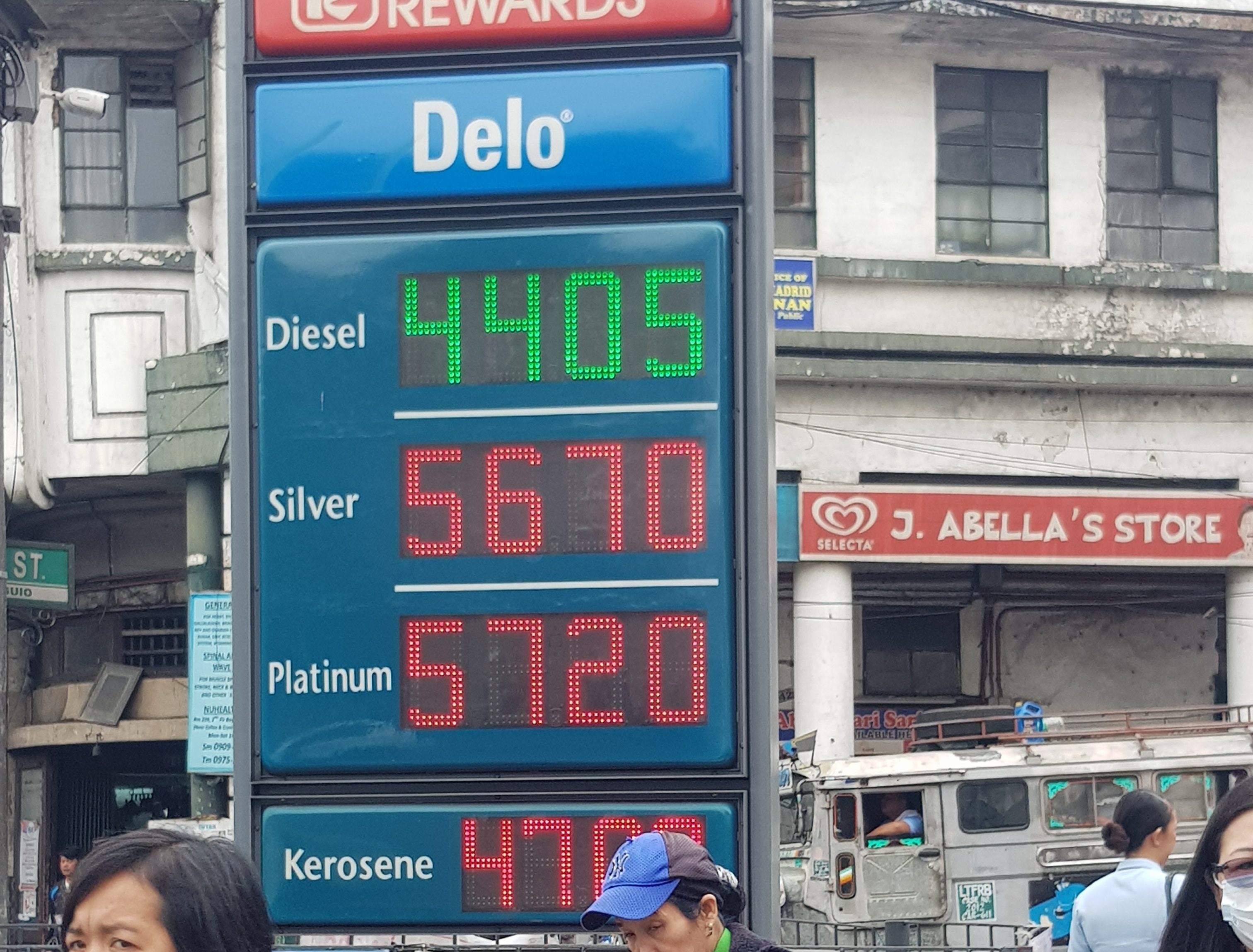
GAS UP Pump prices in Baguio City are at least P6 to P9 higher than those in some areas like La Union and Pangasinan provinces. \n—VALERIE DAMIAN
BAGUIO CITY—Big oil firms have resisted an order from the Department of Energy (DOE) to “unbundle” fuel rates, which would have explained why Baguio pump prices are at least P6 to P9 higher than those in some areas like La Union and Pangasinan provinces, an agency official said on Monday.
Unbundling requires gasoline receipts to spell out what and how much a fuel supplier’s expenses are passed on to customers, said Energy Undersecretary Alexander Lopez, who gathered Baguio gas dealers and various agencies in a forum “to make sense” of the city’s comparatively more expensive gas.
The DOE required oil firms to “unbundle” their rates in August last year, Lopez said.
But the companies had obtained restraining orders from various Manila courts to stop the DOE from implementing its guidelines on the monitoring of prices in the sale of petroleum products.
They argued that unbundling would violate the autonomy they enjoyed as a deregulated industry.
Price computationsLopez said the agency recently opened talks with the companies to explore other ways of making their price computations transparent for consumers.
About 70 percent of pump charges pay for operational costs, taxes and other regulatory fees, while 20 to 30 percent make up the “industry take,” or profit, according to Renante Sevilla, DOE director for north Luzon.
The price difference had bothered Energy Secretary Alfonso Cusi, who approached the issue “from the perspective of a consumer,” Lopez told the forum.
In 2018, the DOE concluded that the 18 centavos spent per liter of fuel hauled to Baguio from oil depots in La Union would not justify the markup of gas prices in the city. The distance between the depot and Baguio is 68 kilometers.
Dealers of petroleum products told Lopez that they set rates based on prices imposed by Petron, Shell and Caltex. They said they reduced gas prices by P3 to P4 in October last year after receiving instructions from their suppliers.
At present, the average gas prices in Baguio are still P6 to P8 higher, Sevilla said.
Motorists, who have transactions in the city, gas up in La Union, Pangasinan, Benguet or Mountain Province, which are P6 to P10 cheaper, he said.
Fair gas pricing“We are not blaming anyone,” Lopez said, noting that the government was not prescribing how much profit oil companies would get.
“We just want gas pricing to be fair,” he added.
The DOE is auditing gas rates in tourist towns and cities to determine if their being favorite destinations is a factor for the increase, he said.